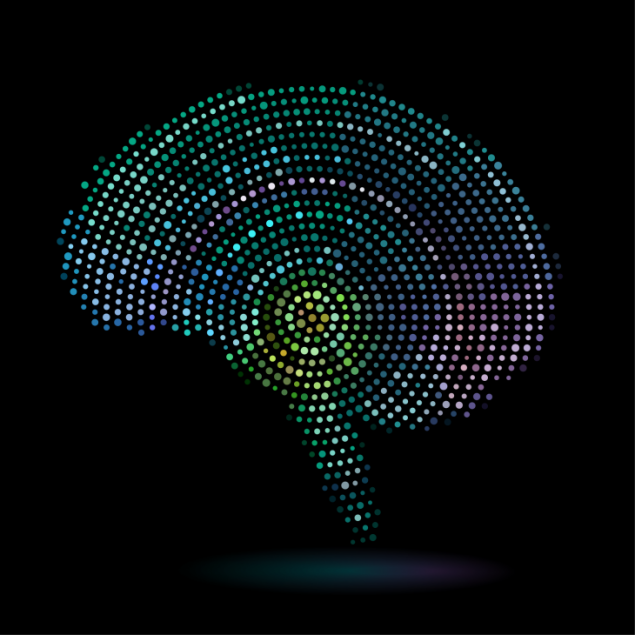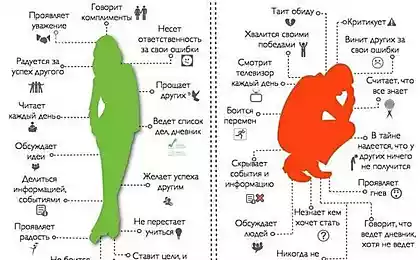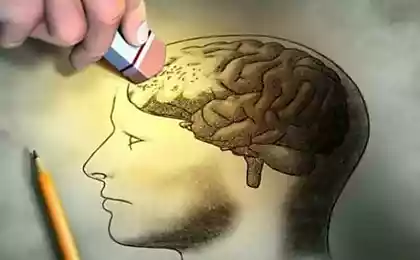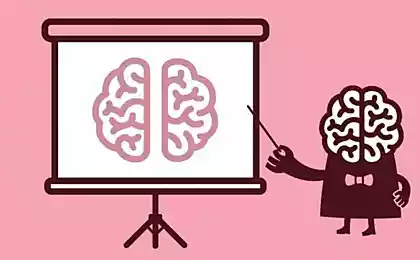857
6 important facts about how our brain stores information
This article talks about the site a few principles that can help your brain to learn new languages, to learn musical instruments, pump and simple cooking skills to extract knowledge from each knig.U find their own little tricks that help to remember more and better. From the children's book of poems by putting a pillow underneath to draw sketches of your thoughts. Science also describes a number of common features of the human brain receives new information.

1. We remember best what we see h2> The brain uses 50% of its resources for the analysis of the seen information. In other words, half of its processing power assigned to the visual process and the rest is divided among the other powers of the body. And the vision directly affects the other senses.
2. We remember the overall picture is better to particulars h2> By studying a variety of new concepts, it is easy to drown in the rising tide of data. To avoid overloading, it is necessary to look back and describe the overall picture. You must understand how the latest knowledge to fit into a single puzzle as they can be useful. The brain is better able to absorb the information, if he spends the connection between it and the earlier something is learned in a single structure.
3. Sleep strongly affects memory h2> Studies have shown that a full night of sleep between cramming and examination significantly improves the results. In one experiment, participants were tested motor skills after their intensive training. And those subjects who slept 12 hours before the test, which showed better results than those who tested every 4 hours of wakefulness.
4. Lack of sleep adversely affects the learning h2> The lack of awareness about sleep and underestimation of its importance thus adversely affect the "flexibility" of your crinkles. Science is still very far from a detailed description of all the medicinal functions of rest, but it clearly is, what leads him lack. The deficit of sleep causes the head to reduce the momentum to act without common risk stereotyped.
5. We do learn best when we give lessons to others h2> The information is absorbed better if in the future she will have someone to share. In this case, we better the structuring of knowledge and remember more important details.
6. We better learn tactics of alternating h2> Frequently, repetition seems the only sure way to memorize information or hone a skill. This method was used more than once during your memorization of the poem, or throw on target with one hand. However, the not so obvious tactic alternation can give greater effect.

1. We remember best what we see h2> The brain uses 50% of its resources for the analysis of the seen information. In other words, half of its processing power assigned to the visual process and the rest is divided among the other powers of the body. And the vision directly affects the other senses.
A wonderful example of this - a test in which 54 fans were asked to taste the wine a few samples of grape drink. The experimenters slipped tasteless and odorless red dye in white wine, to find out whether the participants to discover the trick. They failed, and red instead of white went down with a bang.
Another unexpected finding associated with vision, is that we see the text as separate images. While you read this, your brain interprets each letter in the form of pictures. It is a fact makes reading extremely inefficient compared to getting information from the image. In this case, move objects, we pay more attention than static.
2. We remember the overall picture is better to particulars h2> By studying a variety of new concepts, it is easy to drown in the rising tide of data. To avoid overloading, it is necessary to look back and describe the overall picture. You must understand how the latest knowledge to fit into a single puzzle as they can be useful. The brain is better able to absorb the information, if he spends the connection between it and the earlier something is learned in a single structure.
For a better understanding we give metaphor. Imagine your gyrus - a case with lots of shelves. As soon as you are put in the closet growing number of clothes, you start to share it on different grounds. And that new thing (the new information) - a black jacket. It is possible to send to other knitted things, put a winter wardrobe, or to determine the dark fellow.
In real life, your jacket will find its place in one of those corners. Your knowledge of the brain communicate with the rest. You can easily recall the information later, because it is already riddled with threads that firmly stuck in your head.
3. Sleep strongly affects memory h2> Studies have shown that a full night of sleep between cramming and examination significantly improves the results. In one experiment, participants were tested motor skills after their intensive training. And those subjects who slept 12 hours before the test, which showed better results than those who tested every 4 hours of wakefulness.
Slumber also adds a positive effect. Within the walls of the University of California revealed that students who Quemaro after solving a complex task, perform the following tasks better than those who did not sleep a century.
It is important to know that sleep is good not only after, but also to training. He turns the brain into a dry sponge, ready to absorb every drop of knowledge.
4. Lack of sleep adversely affects the learning h2> The lack of awareness about sleep and underestimation of its importance thus adversely affect the "flexibility" of your crinkles. Science is still very far from a detailed description of all the medicinal functions of rest, but it clearly is, what leads him lack. The deficit of sleep causes the head to reduce the momentum to act without common risk stereotyped.
What concerns training, lack of sleep reduces the brain's ability to accept new information by 40%. So, no need to torture yourself at night with low efficiency, better rest and wake up fully armed.
The results of research at Harvard Medical School contains interesting figures: sleep restriction in the first 30 hours after mastering something new can negate all the achievements, even if you have great night's sleep after these days with a tail.
5. We do learn best when we give lessons to others h2> The information is absorbed better if in the future she will have someone to share. In this case, we better the structuring of knowledge and remember more important details.
This is confirmed by a very significant experiment. The researchers divided the participants into two equal groups and given them the same job. According to legend, a little later half of the subjects had to convey this knowledge to other people. It is not hard to guess that the future "teacher" showed a deeper level of assimilation. Researchers see firsthand the power of "responsible mindset", which gave such effective results.
6. We better learn tactics of alternating h2> Frequently, repetition seems the only sure way to memorize information or hone a skill. This method was used more than once during your memorization of the poem, or throw on target with one hand. However, the not so obvious tactic alternation can give greater effect.
For example, in one experiment, participants showed the painting in different artistic styles. The first group of six series showed examples of each style, and the second - mixed (different schools in random order). Won the last: they are twice as likely guessed belonging to the style. It is interesting that 70% of all subjects before the study were assured that the sequence should give odds alternation.
via lifehacker.ru/2015/08/04/brain-and-information/
30 facts about animals that lift your mood
5 things you need to know if you are between twenty and thirty
























